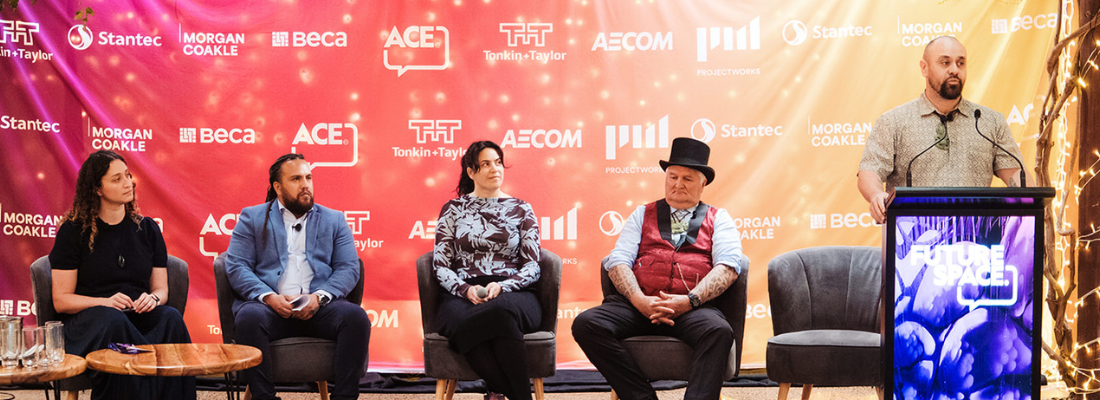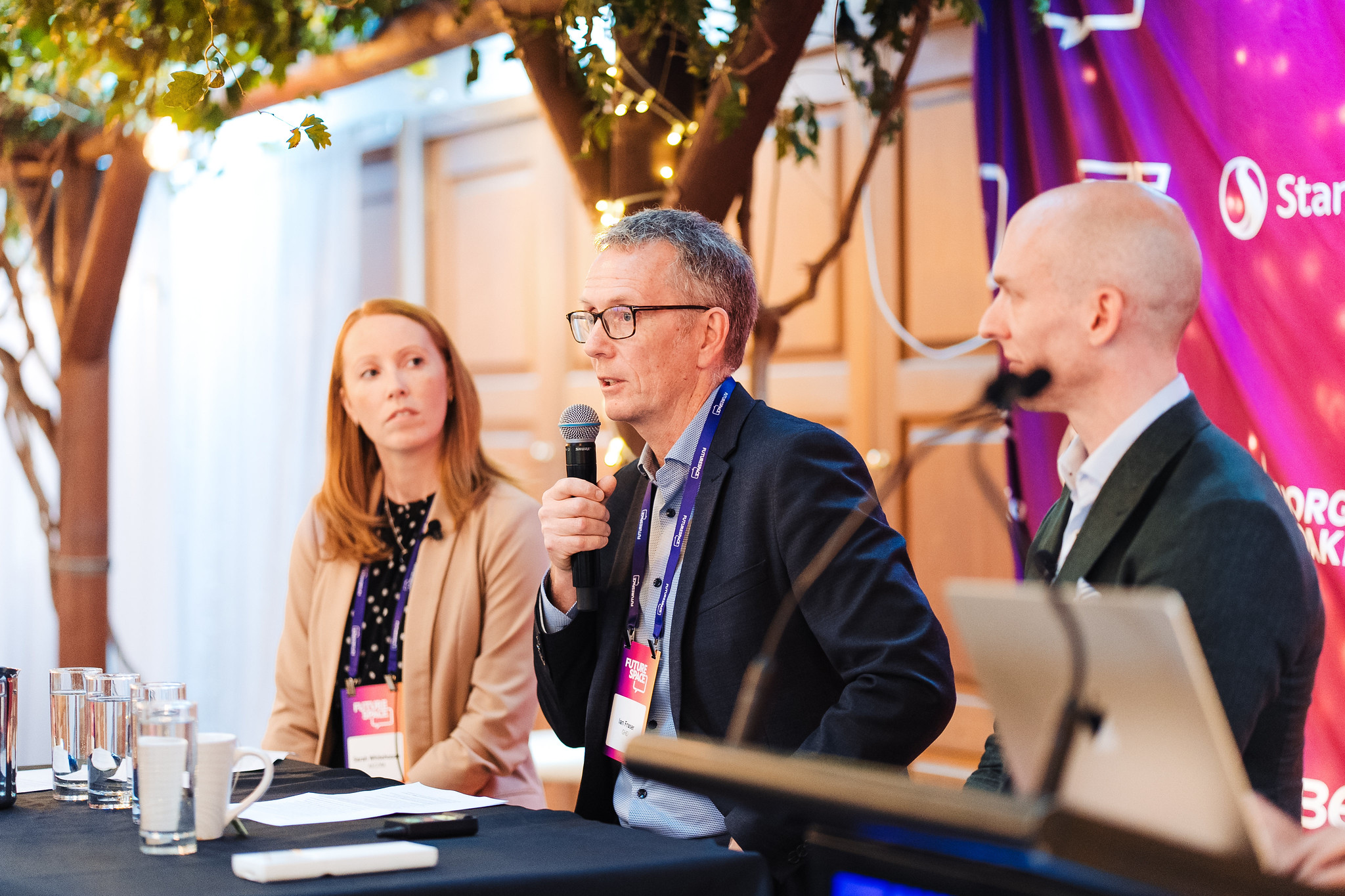1. Get the data right, then let people drive the work
The first 90 days of an infrastructure project are critical – but too often wasted chasing down fragmented data, wrestling with legacy formats and resolving contradictions. These delays inflate risk and erode momentum before work begins, noted Tonkin + Taylor’s Dave Braendler.
“We don't need more dashboards; we don't need more reporting. We need a system that brings data together and provides clarity.”
With a PhD in AI before many in the room knew what it was, Dave offered a framework to ensure data clarity in those crucial first 90 days. He urged business leaders to keep people at the heart of AI adoption to make workplaces more human and unlock unexpected benefits.
Speaking in a later session, Rowan Hallam from Woods agreed. “Technology doesn’t grow business, people do,” he said. Applying the right tech at the right time builds client trust. But engaging the right surveyor early – someone who understands both the tech and the project context – is critical. “Passionate people drive progress.”
Scott McKerrow from Context Architects added a note of caution: “The pace of technological change is unprecedented… We need to focus on how our future roles will fundamentally change.” While AI is rapidly changing the nature of consultancy leadership, one aspect remains: “our humanity.”
2. Technical merit doesn’t win communities. Trust does.
“By giving people clarity and autonomy, we lower the social risk and make it relatable to communities.” Stantec’s Amy Shattock explored why infrastructure projects often encounter resistance from the very communities they are built to serve.
Amy unpacked how projects can be perceived by the community and the importance of communication (including using 3D glasses as an interactive prop). She then offered strategies to overcome community reluctance and garner support for infrastructure projects.
“We can no longer convince people with facts; it must be combined with messaging from someone who is just like them.”

3. Cultural intelligence is a core consulting capability
“Nobody sees our culture the same way we do. People see a mountain, they don't see the stories. We think differently, we see differently. Some things we can't put into words, we have to express through our bodies.”
A new generation of consultants have grown up fully immersed in Māori language and culture. Because of that upbringing, they bring a different worldview, different leadership instincts and a stronger cultural grounding into the engineering profession.
This was one of the takeaways from a powerful session featuring panellists Rikona Andrews (AECOM), Kumeroa Pihama (Tonkin + Taylor), Emily Afoa (Tektus) and James Kendrick (Ngāti Kahungunu ki Tamaki nui a Rua), facilitated by L'Rey Renata (GHD).
In another session, WSP’s Hinerangi Hemara-Haeana spoke about how Māori data sovereignty can be embedded within engineering projects. She drew on her experience of working on the Ōtaki to north of Levin highway project and why iwi engagement is essential and a foundation for ethical practice. “It’s really important for iwi to be at the table.”
4. The first line of infrastructure failure isn’t out on site.
Sinéad Coffey from Tend2Create challenged business leaders to ask themselves three questions when opening the next bid: Does this opportunity align with who we are? Can our people absorb it without breaking? Will this process make us better, not just busier?
"Bidding is broken. Not because people don’t care – but because the system rewards speed over sense. Every week across Aotearoa, brilliant people step into bid rooms already running on empty. We celebrate deadlines as endurance events, and we call survival a success metric.
“But what if the first line of infrastructure failure isn’t out on site? What if it’s right here – in how we design the bid itself?”
Beca’s Neil Thompson, a technologist, economist and engineer, explored why collaborative and courageous forms of procurement enable better outcomes. He urged engineers to think of themselves as being part of a high-tech industry and to consider their roles within the infrastructure system.
“Let’s provide a more cohesive story to pull all these bits and pieces together,” Neil said.
5. Different regions, same pressures, and a consulting sector aligned on the future it needs to build.
A power-packed panel, featuring Consult Australia CEO Jonathan Cartledge, Ian Fraser from GHD and Sarah Whitehouse from AECOM, offered quick-fire insights into key challenges and opportunities in different regions around the world. The hot topics in Australia, Asia, Canada and the US are all familiar: workforce development, sustainability, the regulatory environment, risk allocation.
Steven Lefton from the American Council of Engineering Companies (ACEC) beamed in from the US to share insights into the Firm of the Future project – a research initiative designed to explore and prepare for the evolving landscape of engineering and design firms by 2035.
Core themes of the project include technology integration, talent management, environmental awareness, adaptability, leadership and strategy, evolving business models, client relationships, social responsibility, community impact and collaboration.
Different markets, same trajectory.
For the full rundown of speakers and sessions, explore the Futurespace 2025 highlights on the ACE New Zealand website.
